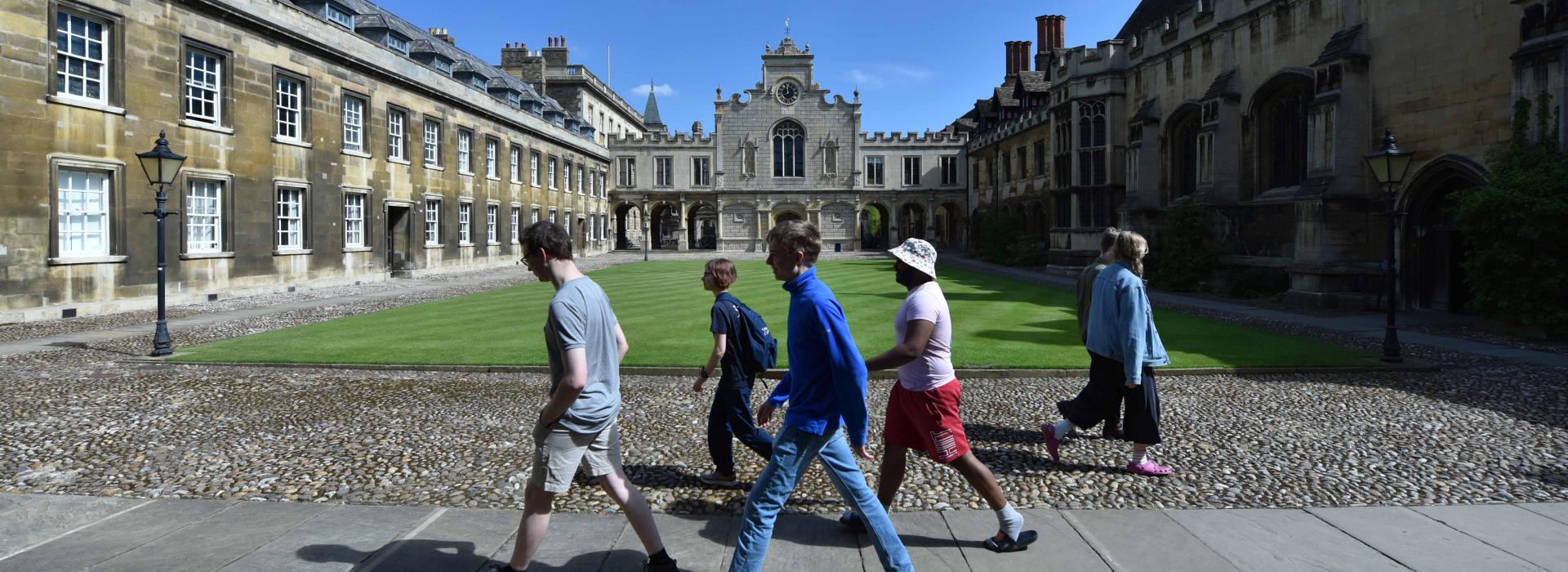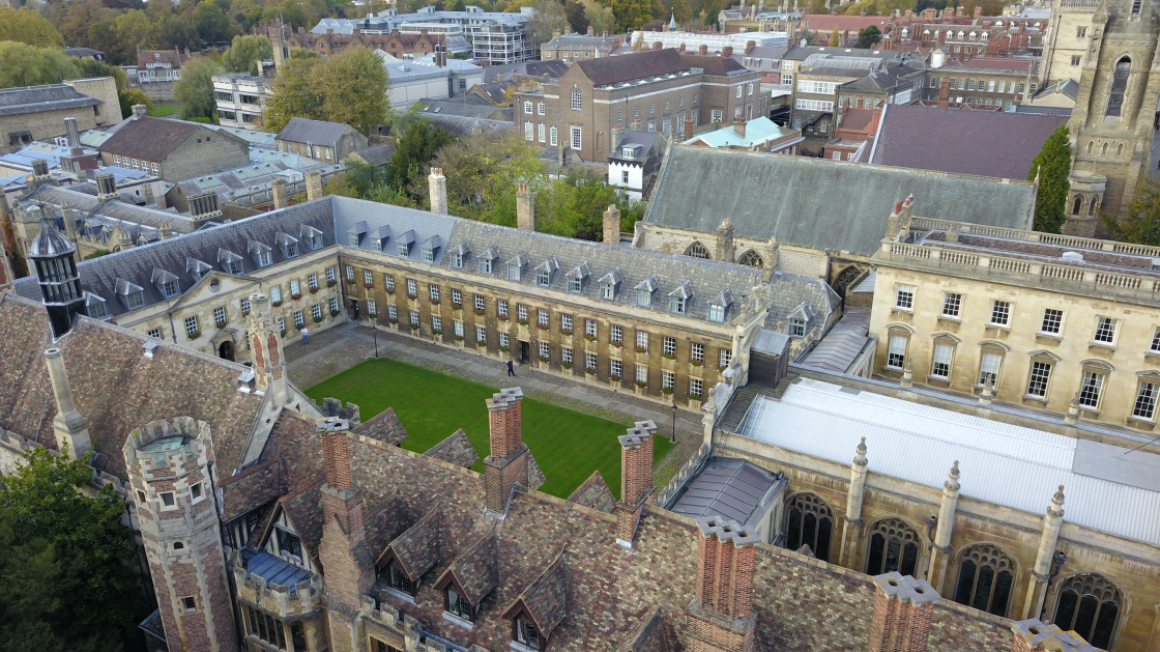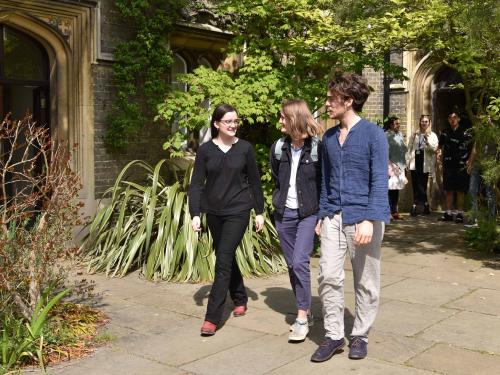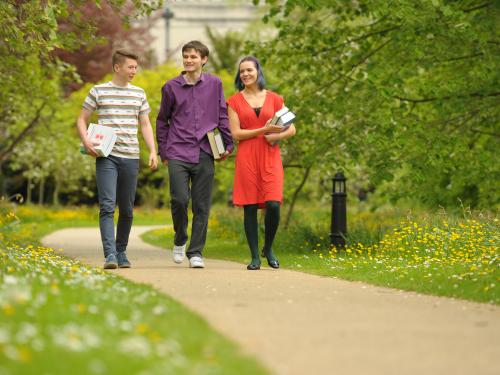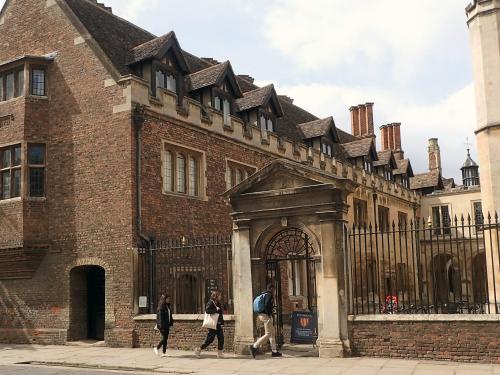Breadcrumb
Peterhouse is the oldest of the Cambridge colleges, founded by Hugo de Balsham, Bishop of Ely in 1284 and granted its charter by King Edward I. The College is a Registered Charity, no. 1137457. As a charitable institution dedicated to education and research, the College has made its own distinctive contribution to society for over 700 years, surviving the Reformation, Civil War and the upheavals of every century since. It remains the smallest college in terms of number of Fellows and students, but as the late Noel Annan put it in his 1999 survey of the universities and society, The Dons, this small College has always had "an intellectual influence … out of all proportion to [its] size".
The College has survived pandemics, revolutions and political, religious and societal upheavals over more than 700 years. Its remarkable continuity is reflected in the historical benefactions that underpin its life and work today. Communal life is centred on the 13th century Hall, the 17th century Chapel; and the Libraries, which have built on the benefactions of Andrew Perne in the sixteenth century and of Adolphus Ward in the early twentieth. The Master lives in a Lodge built by the son of the 30th Master, Joseph Beaumont, left to the College in 1727. Our College tour page gives more information on these buildings and other parts of Peterhouse.
In addition to the historical physical fabric of the College, generous donations have enabled us to support our students for many centuries: since 1580 a Scholar has been supported by The Heron Bequest, established through the Clothworkers' Company; our Organ Scholars are still funded from the 17th century benefaction of Bernard Hale; Fellowships, Studentships and a building were funded and named by William Stone in the late 20th century. We remember with gratitude these, and many others who have shaped our College, at the annual Service for the Commemoration of Benefactors.
Yet this small College, rooted in continuity, is at the same time a centre of innovation, across a spectrum of subjects from the most evidently practical to the most apparently esoteric. Throughout its history, Petreans have been at the heart of the political, social and religious controversies that have shaped society. The computer takes its inspiration from Charles Babbage. Lord Kelvin brought electric light to the College second only to the Houses of Parliament, to mark Peterhouse’s 600th anniversary in 1884. Sir Frank Whittle and Sir Christopher Cockerell gave the world the jet engine and the hovercraft. All were Petreans. Four Petrean scientific Nobel Laureates – Sir John Kendrew, Sir Aaron Klug, Archer Martin and Max Perutz – gave a twentieth century lead in Molecular Biology. As that century neared its end, the Presidents of both the Royal Society and the British Academy were Petreans. In the new century Michael Levitt was awarded a Nobel Prize in 2013 raising the total count of Petrean Nobel Laureates to five. Throughout, Peterhouse has remained a place where, rooted in tradition and security, new ideas, and successive generations of the brightest young people, have evolved, grown, and taken wing. It has been and is somewhere that values the bold, the characterful and the committed above the commonplace, the familiar and the mundane.
Peterhouse from the air
Peterhouse is renowned for its stimulating and friendly atmosphere, the diversity of its students and the range of their academic, extra-curricular and social activities, as well as for the quality of its facilities.
We hope that this website will help you to find the information about Peterhouse which interest you. If not, please don’t hesitate to contact us.

